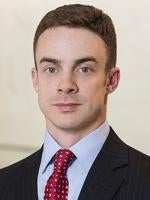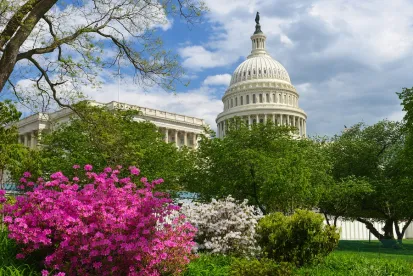Legislative Activity
House Lawmakers Discuss Movement on Telecom Bills Before Recess and Election
During a Federal Communications Bar Association lunch held June 8, House Energy & Commerce Committee (House Commerce Committee) counsel discussed pending communications legislation and the likelihood of seeing movement in the coming months.
Majority counsel David Redl expressed interest in advancing H.R.4889, the Kelsey Smith Act (previously discussed here), which would require telecommunications carriers to share call location information with law enforcement in emergency situations. The bill failed in a House floor suspension vote with both Republicans and Democrats voting against the legislation. Minority counsel cited concerns that the bill lacked the privacy protections necessary to win Democratic support.
H.R.1301, the Amateur Radio Parity Act also appeared to be well-placed for advancement. That bill would require the Federal Communications Commission (FCC) to adopt rules that would protect amateur radio equipment from the reach of community association rules and architectural standards that can interfere with the installation and operation of amateur radio towers and antennas. The legislation cleared the Communications and Technology Subcommittee but not the full committee. Mr. Redl also voiced support for advancing H.R.2669, the Anti-Spoofing Act (previously discussed here). That bill cracks down on the practice of “spoofing,” whereby callers change the way their phone numbers appear on caller identification (caller ID), often to elude law enforcement or to scam the called party.
Minority counsel David Goldman noted that H.R.3998, the Securing Access to Networks in Disasters Act (SANDy Act), is a priority. That legislation would require mobile service providers to ensure that consumers have access to networks during disasters. The bill has passed the House and is now in the Senate for consideration.
Finally, there was discussion of S.2555, the Making Opportunities for Broadband Investment and Limiting Excessive and Needless Obstacles to Wireless Act (MOBILE NOW Act). MOBILE NOW targets the buildout of next-generation 5G wireless broadband networks by ensuring that more spectrum is made available for commercial use. Mr. Goldman stated that there were provisions that both parties likely agree on in principle. Mr. Redl indicated that the bill may move forward once it is out of the Senate, where according to some reports, it is being tied to the reconfirmation of Commissioner Rosenworcel.
Spoofing Protection Bill Introduced
On June 7, Sen. Charles Schumer (D-NY) introduced S.3026, the Repeated Objectionable Bothering of Consumers on Phones (ROBOCOP) Act. The bill expands and clarifies the prohibition on the practice of “spoofing” whereby a telephone caller alters the phone number that appears on the recipient’s caller ID system. Specifically, the bill would direct the FCC to require telecommunications carriers to block calls with falsified caller ID and to offer such blocking technology to consumers in order to reduce the incidence of spoofed or otherwise unwanted telephone calls. The bill is a companion to H.R. 4932 (previously discussed here) introduced in the House by Rep. Jackie Speier (D-CA). The Senate bill has been referred to the Senate Committee on Commerce, Science, and Transportation (Senate Commerce Committee).
Protecting Internet Freedom Act Introduced
On June 8, Sen. Ted Cruz (R-TX) introduced S.3034, the Protecting Internet Freedom Act. The bill would prohibit the National Telecommunications and Information Administration (NTIA) from relinquishing its responsibilities for managing certain Internet functions under the Internet Assigned Numbers Authority (IANA). The IANA, which is a department of the Internet Corporation for Assigned Names and Numbers, is responsible for coordinating the assignment of technical Internet protocol (IP) parameters, performing various administrative functions associated with the Internet domain name system, and allocating the Internet numbering resources. Presently, the NTIA oversees IANA’s management of the domain name system, which converts alphabetic domain names (i.e. squirepattonboggs.com) into a numeric IP address required for access to websites, mail services, and other parts of the Internet. In March 2014, the NTIA announced its intent to terminate the contract and turn its oversight responsibilities over to a “multi-stakeholder model” consisting of an international community of governments, civil society, and businesses. In addition to preventing the NTIA from relinquishing its oversight responsibilities, the bill would require the United States to maintain the sole ownership of the “.gov” and “.mil” domain names. The bill has been referred to the Senate Commerce Committee. A companion bill, H.R.5418, with the same name and purpose, was introduced in the House on June 9.
This Week’s Hearings:
-
Tuesday, June 14: The House Commerce Committee will hold a hearing entitled “FCC Overreach: Examining the Proposed Privacy Rules.” Witnesses at the hearing will include Doug Brake, Telecommunications Policy Analyst at the Information Technology and Innovation Foundation, Jon Leibowitz, Co-Chair of the 21st Century Privacy Coalition, and Paul Ohm, Professor at Georgetown University Law Center’s Center on Privacy and Technology. The hearing notice identifies a variety of concerns with the proposed privacy rules including consumer welfare concerns, constitutional issues, and congressional and legislative issues.
Regulatory Activity
FCC Commissioner Pai Raises Further Concerns About “Abuse” of Lifeline Program In New Letter to USAC CEO
FCC Commissioner Ajit Pai has raised the concern that “abuse of the Universal Service Fund’s Lifeline program is more widespread than I first thought” in a June 8 letter to Chris Henderson, CEO of the Universal Service Administrative Company (USAC). Lifeline is a government subsidy program that provides discounted phone service to low-income consumers; the Lifeline program is administered by USAC and overseen by the FCC. Commissioner Pai’s letter follows letters sent by his office to the USAC CEO on April 18 and May 31 also raising concerns about “waste, fraud and abuse” of the Lifeline program.
The June 8 letter raises particular concern about potential abuse from “duplicate subscribers (that is, individuals getting multiple subsidies).” Commissioner Pai explains that although there is a “one-per-household” rule for Lifeline subsidies, there is also an “override process” to that rule that “appears to be undermining” the rule and not preventing a “large number of duplicate subscribers from claiming Lifeline subsidies,” according to Commissioner Pai. In particular, Commissioner Pai notes that “35.3% of all subscribers” in applicable states were enrolled using the override process between October 2014 and April 2016, and states that it is “alarming that over one-third of subscribers – costing taxpayers almost half a billion dollars a year – were registered” using an override. Commissioner Pai also asks in the letter that USAC provide his office with various information related to the override process.
FCC Commissioner O’Rielly Calls for FCC to Clarify the DSRC Systems Capable of Operating on an Unlicensed Basis
In a June 8 post to the FCC Blog, FCC Commissioner Michael O’Rielly called on the FCC to clarify “what falls under the term ‘safety of life’” for “Dedicated Short Range Communications (DSRC) systems in the 5.9 GHz spectrum band,” noting that the FCC’s “1999 DSRC item . . . contemplated, and reserved for later judgment, that non-safety functions could operate on an unlicensed basis separate from the safety-of-life DSRC.” DSRC technology uses short-range wireless communication links to facilitate information transfer between vehicles and between vehicles and infrastructure for intelligent transportation systems. As we have previously covered, the FCC is currently seeking to “refresh the record on the status of potential sharing solutions between proposed Unlicensed National information Infrastructure (U-NII) devices and [DSRC] operations in the 5.850-5.925 GHz (U-NII-4) band,” according to a June 1 Public Notice.
Commissioner O’Rielly states in his post that given the FCC’s current proceeding, “this is the perfect time for the FCC to define what is and is not included within the safety-of-life category. Clarifying which DSRC functions are worthy of protection would provide certainty to automobile manufacturers and ensure the efficient use of the spectrum band.” Commissioner O’Rielly states that vehicle safety is a “noble and important purpose” but notes also that “the benefits of allowing unlicensed services in the 5.9 GHz band could be considerable,” including for example “gigabit Wi-Fi.”
In a 2014 Report, the National Highway Traffic Safety Administration noted that sufficient wireless spectrum needs to be in place to ensure the success of Dedicated Short Range Communications technologies. The Report acknowledged the FCC proceeding discussed above and expressed concerns about interference and the continued progress of V2V technology should the FCC open the 5.8-5.9 GHz band to U-NII devices.





 />i
/>i
